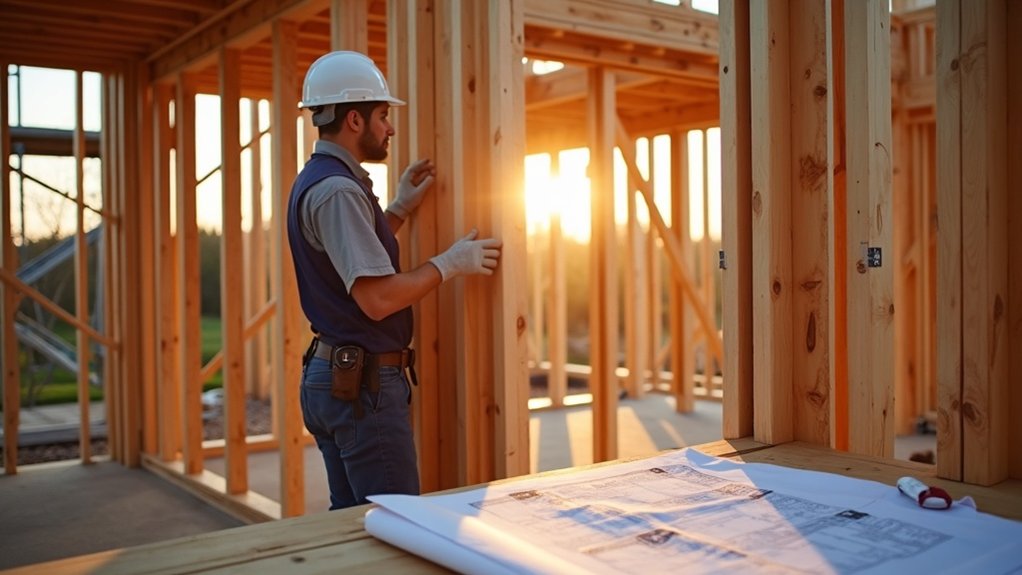You can’t assume an MCS certificate covers building regulations because it only certifies that your microgeneration installation meets industry standards for quality and safety. It doesn’t address legal requirements enforced by local authorities, such as structural integrity or planning permissions. Compliance with building regulations remains your responsibility, including obtaining necessary approvals and inspections. Understanding this distinction is essential for avoiding penalties and ensuring your project meets all official standards—explore further to grasp the full scope of these regulatory frameworks.
Understanding the Purpose of an MCS Certificate
An MCS Certificate serves as a formal verification that your microgeneration technology installation adheres to established industry standards and complies with relevant regulations. This certification confirms that your installation meets stringent quality benchmarks, guaranteeing performance and safety within the microgeneration sector. Importantly, obtaining an MCS Certificate is essential if you want to qualify for government incentives like the Feed-in Tariff or Renewable Heat Incentive, which provide financial rewards for renewable energy production. However, the certificate itself does not guarantee compliance with local building regulations or planning permissions, which remain your responsibility to secure separately. While the MCS Certificate assures you of adherence to microgeneration standards, you must still navigate additional local authority requirements to make certain your installation is safe, structurally sound, and energy-efficient according to regional codes. To ensure the highest quality and regulatory compliance, it is recommended to work with MCS-certified installers who have met rigorous assessment criteria and maintain up-to-date expertise.
Distinguishing Between MCS Certification and Building Regulations
While MCS Certification confirms that your renewable energy system meets established industry standards for quality and performance, it does not address compliance with local building regulations, which are legally mandated to guarantee safety, health, and environmental protection in construction projects. You must verify your installation meets these regulations independently, as MCS certification doesn’t cover this aspect. Local authorities enforce building regulations separately from MCS certification, requiring approvals and inspections.
| Aspect | MCS Certification |
|---|---|
| Focus | Quality and performance of renewable energy systems |
| Legal Requirement | No, voluntary but highly recommended |
| Coverage | Does not include building regulation compliance |
| Authority | Industry-standard bodies, not local building control |
How Building Regulations Apply to Renewable Energy Installations
Because building regulations serve as legally mandated standards set by local authorities, you must verify your renewable energy installation complies with these rules to guarantee safety, health, and energy efficiency. In the UK, installations like solar panels and heat pumps must meet specific requirements concerning structural integrity, electrical safety, and energy performance. While an MCS Certificate confirms the product and installer meet industry standards, it does not guarantee full compliance with building regulations. You’re responsible for securing any necessary permissions and confirming that your system adheres to local requirements before installation. Ignoring these regulations can lead to penalties, mandatory remedial work, or complications when selling your property. Consequently, thorough documentation and adherence to building regulations are essential throughout your renewable energy project. Additionally, when selling or renting your property, having a valid Energy Performance Certificate is mandatory to demonstrate energy efficiency compliance.
The Role of Local Authorities in Building Regulation Compliance
Local authorities play a critical role in ensuring that building projects comply with established Building Regulations, which set legally enforceable standards for safety, structural integrity, and energy efficiency. They oversee that all construction, including new builds and major renovations, meets these minimum requirements, covering aspects such as fire safety and accessibility. Unlike MCS Certificates, which verify renewable energy installation quality, Building Regulation compliance is mandatory and requires separate approval. Before starting work subject to these regulations, you must obtain building control approval from your local authority or an approved inspector. During construction, local authorities may conduct inspections to confirm compliance and can impose penalties if standards are not met. Their role is essential in maintaining safety and legal adherence throughout the building process.
Responsibilities of Homeowners Regarding Building Regulations
Even though you might possess an MCS Certificate confirming the quality of a renewable energy installation, you still have the responsibility to confirm full compliance with local building regulations before beginning any work. The MCS Certificate does not cover these regulations, so you must make sure you obtain necessary planning permissions and notify your local authority if required. This is especially vital for installations that could affect your property’s structure or appearance. Neglecting these duties can lead to enforcement actions, including fines or orders to dismantle the installation. To avoid such outcomes, it’s advisable to consult a qualified professional who can guide you through the regulatory requirements during the installation process, making certain that your project meets all legal standards effectively and efficiently.
